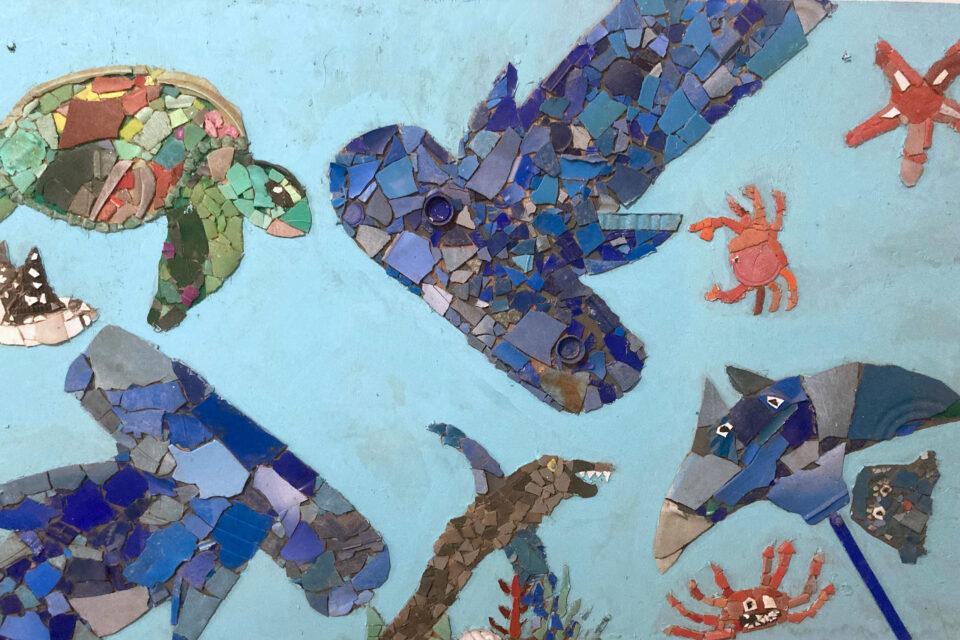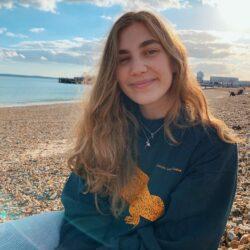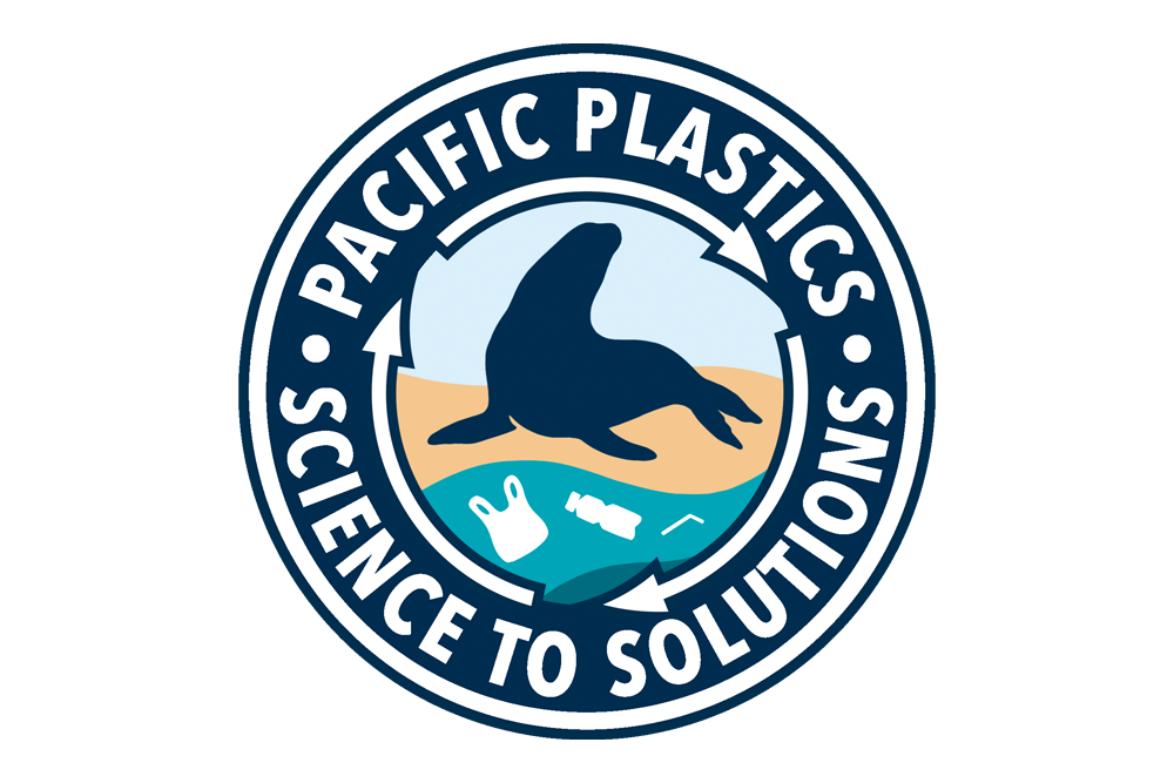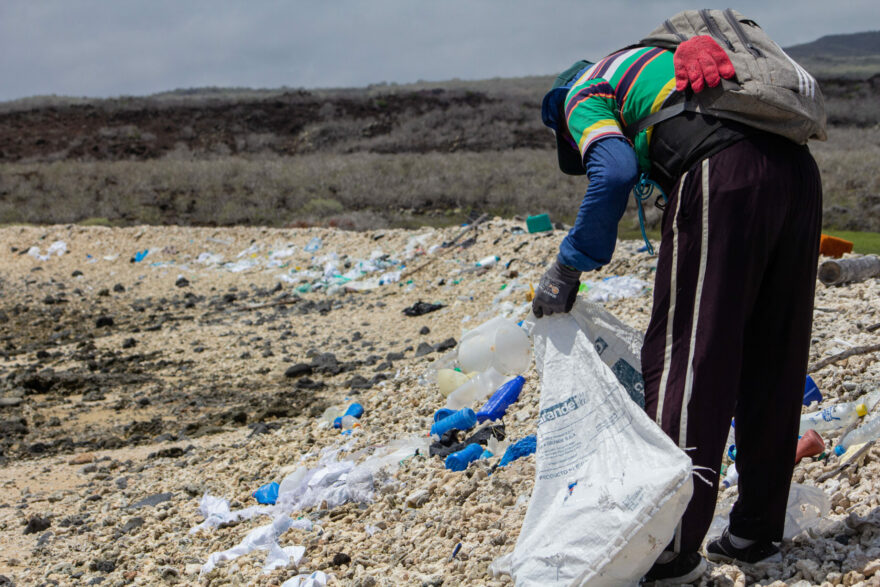

Developing regional solutions to plastic pollution
In the clifftop city of Lima, Peru, more than 60 people came together to workshop how to accelerate our impact to reduce plastic pollution.
After two years of working together online, persevering through dodgy internet connections, multiple time zones and the minor issue of a global pandemic, our network of over 60 change-makers finally met face-to-face during a workshop hosted by one of our partners, the Pontifical Catholic University of Peru (PUCP), in November 2022.
In total, 65 participants from 22 institutions and four countries came together to share results, discuss next steps, and workshop ideas to ensure impactful outcomes over the next two years. Over three days, we heard from all areas of our network, mapping everything we have learned about plastic pollution in the South-Eastern Pacific region. During lively workshops, we also explored ‘lowest hanging fruit’ solutions to have rapid impact, as well as co-designing long-term strategies for change.

What are the sources of plastic pollution?
Understanding where the plastic pollution is coming from, how it’s perceived and how it flows through the region is the crucial first step for our network, as it gives us a strong foundation on which to develop effective solutions. Our researchers have generated models that can estimate how much plastic is lost into the environment from urban sources and key marine industries. We can then use high resolution oceanic current models to predict how plastic is being transported into and throughout the Galapagos Marine Reserve, including finding ‘hot spots’ where it is most likely to accumulate.
Large-scale international citizen science activities and behavioural studies complement this work, identifying the variations in perception of litter, pro-environmental behaviours, and highlighting opportunities for effective interventions at source.
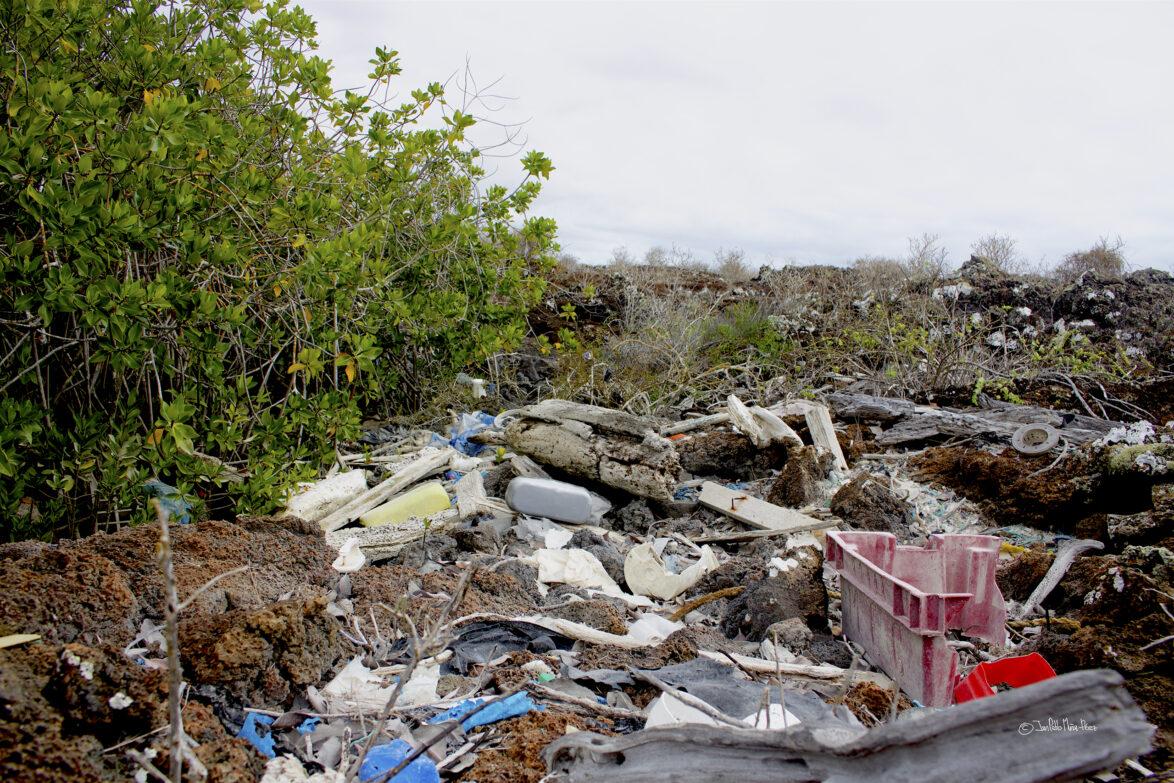
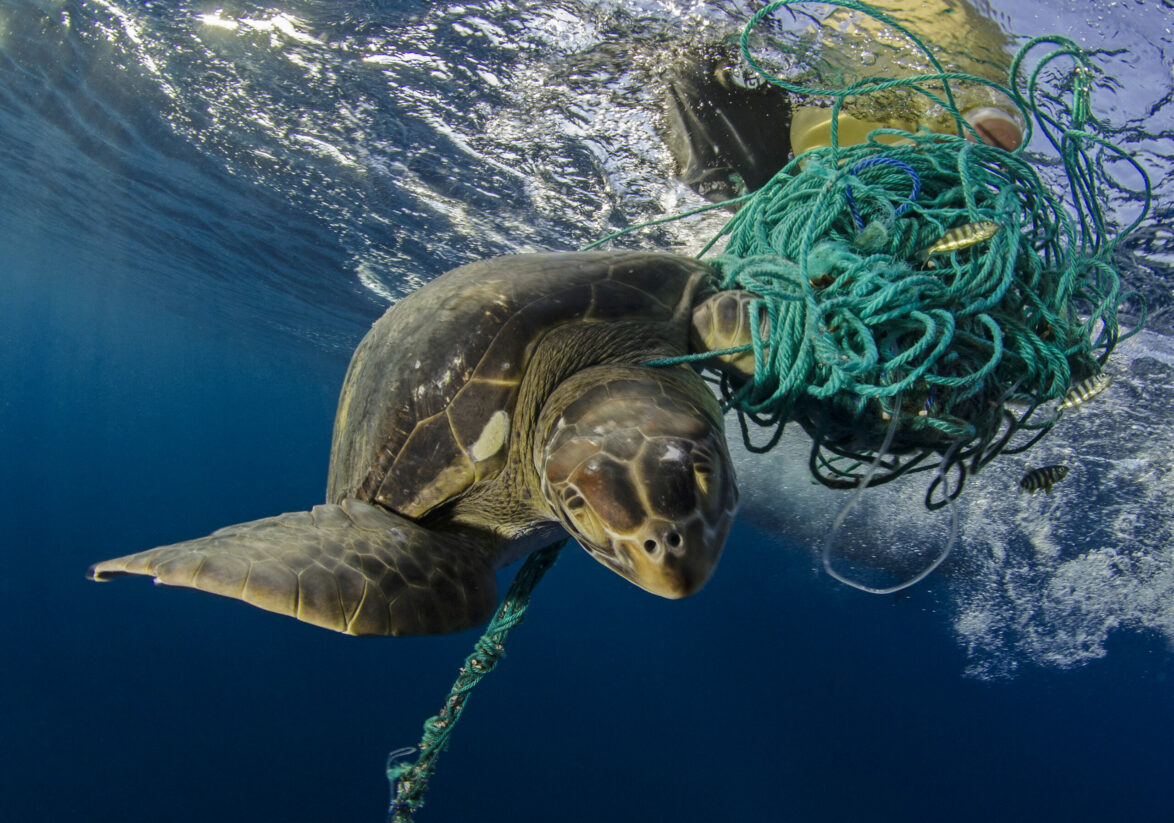
How we’re working towards a Global Plastics Treaty
GCT is working with partners and government agencies towards securing a Global Plastics Treaty to end the scourge of plastic pollution in Galapagos.
What are the impacts of plastic pollution?
In order to make solutions the most effective, we also need to know which ecosystems, species and socioeconomic activities are the most at risk from plastic pollution. To do this, we have gathered information on multiple scales, from the accumulation of microplastics in tiny shellfish to the accumulation of macroplastics and fishing gear across beaches, coral reefs and mangrove habitats, with many studies in between.
We are also assessing the risks to specific species including sea lions, turtles and marine iguanas, as well as commercially important species such as mangrove crabs. Our researchers have gathered a large body of evidence from surveys in Galapagos, mainland Ecuador, Peru, Chile and elsewhere, giving us a holistic view of the issues associated with plastic pollution.

45 %
of plastic used on Pacific coast of Latin America inadequately managed
What are the solutions to eradicating plastic pollution?
Immediate action is needed to reduce the devastating effects of plastic pollution, as well as long-term change in the form of a circular economy for plastics in the region. Our network is tackling the problem from two directions: mitigation and prevention. We are preventing future plastic pollution by working with business and industries to reduce single-use plastic consumption, championing a transition towards a circular economy for plastics reinforced by policy and investment.
Our teams are also working with fisheries to improve waste management, increase engagement with environmental initiatives, and identify polluting vessels and methods (such as the use of fish aggregating devices). We are also reducing the detrimental impacts of plastic already in the environment by increasing the effectiveness of beach cleans, removing plastic from rivers before it enters the ocean, and finding viable uses for this cleaned plastic that also promotes investment in ‘green jobs’.
A key strategy for the network this year is our emphasis on the negotiations for the Global Plastics Treaty. We are working to advise on a political level, using Galapagos and the South-Eastern Pacific as a model for global change. We will also be working to support regional and local governments in the design and implementation of circular economy and single-use plastics policies.
We are preventing future plastic pollution by working with business and industries to reduce single-use plastic consumption, championing a transition towards a circular economy...
Related articles

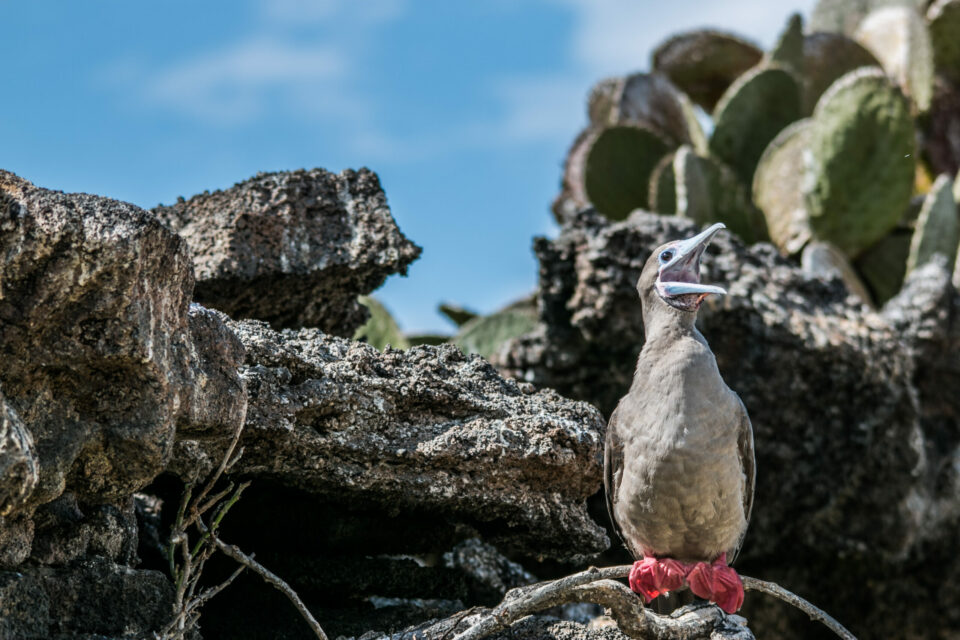
How to have an eco-friendly Christmas
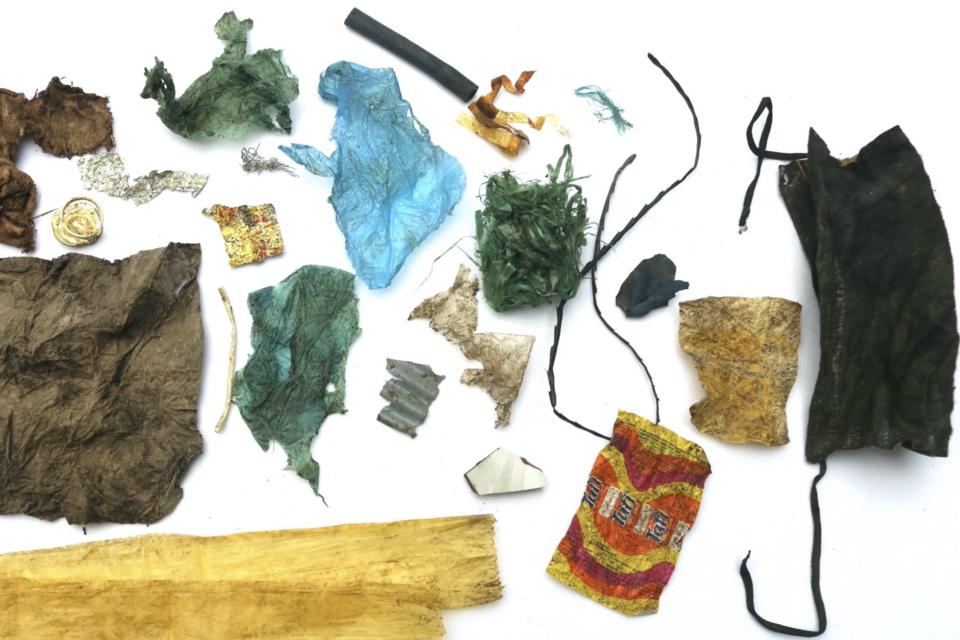
New research shows that Galapagos giant tortoises are ingesting plastic waste
